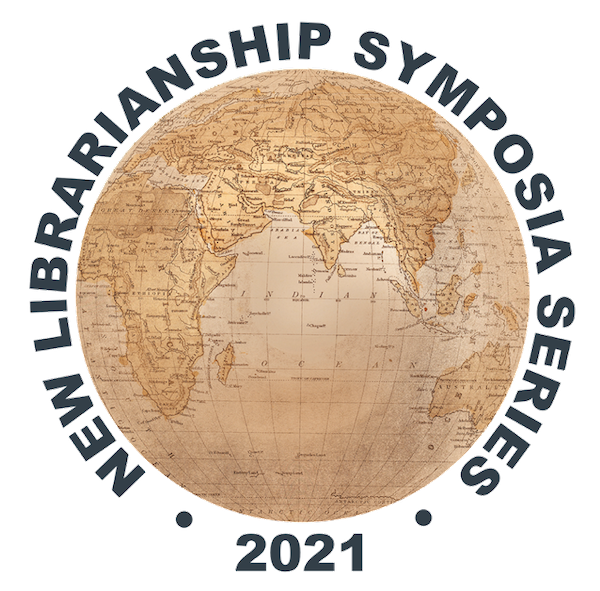Public librarianship for a pluralism of values in agonistic democracies
Submission Type
Paper Abstract Submission
Symposium Selection
Post-neutrality librarianship
Keywords
public libraries; librarianship; democracy; post-neutrality; agonistic pluralism
Abstract
The title of the second New Librarianship symposium, ‘Post-Neutrality Librarianship’, asserts that in the past librarians have adhered to a strictly neutral code of conduct, maybe even until this day, but that now the time has come to say farewell.
In this talk, I will try to demonstrate that striving for impartiality and balancedness of religious and ideological orientations have guided public librarianship. Rather than being neutral to the point of becoming colorless, public library collections were supposed to strike a balance between ideological currents present in society, and in so doing present all societal colors evenly. That was, at least, the ethical imperative taught in library schools.
The distinction between neutrality and balanced plurality can be illustrated with central strands of thinking in social and political philosophy. German social philosopher Jürgen Habermas’s 1962 book Strukturwandel der Öffentlichkeit (translated as The structural transformation of the public sphere) can be seen as providing a philosophical foundation for the neutral stance. In Habermas’s view, political controversies are brought to a conclusion through rational discourse. In political discussions, opponents get to learn their adversaries’ convictions and viewpoints, which in the end leads to a balanced compromise that all agree serves the public interest.
This highly influential concept of ‘deliberative democracy’ based on ‘communicative rationality’ has been challenged by, among others, political philosopher Chantal Mouffe, who confronted it with her concept of ‘agonistic democracy’. Mouffe argues that the search for a final rational resolution between the pluralism of values present in society is misguided. ‘Agonistic pluralism’ instead leaves room for the ongoing power struggle between ideologies in ‘conflictual consensus’: “the prime task of democratic politics is not to eliminate passions from the sphere of the public, in order to render a rational consensus possible, but to mobilize those passions towards democratic designs” (Mouffe, The Democratic Paradox, London/New York: Verso, 2000, p. 103). An absence of rational consensus is, as such, not a threat to the democratic order, as long as political adversaries agree to be just that: legitimate adversaries (not enemies) sharing an adherence to the principles of liberal democracy.
In recent times, however, we have seen the emergence of ‘illiberal democracies’ in countries on almost all continents. Temporary absolute majorities in parliament are used to suppress oppositional forces and gradually establish absolutist regimes thinly veiled as ‘modern democracies’. Post-neutrality librarianship, I would argue, strives to promote two correlated convictions. First, that protecting (and, if necessary, restoring) liberal-democratic principles is at the core of public librarianship proper. And second, that strengthening public discourse by showcasing (hence ‘including’) the diversity of opinions and discourses in pluralistic societies – not trying to underplay them for the sake of ‘neutrality’ – is the raison d’être of public librarianship in this day and age.
Public librarianship for a pluralism of values in agonistic democracies
The title of the second New Librarianship symposium, ‘Post-Neutrality Librarianship’, asserts that in the past librarians have adhered to a strictly neutral code of conduct, maybe even until this day, but that now the time has come to say farewell.
In this talk, I will try to demonstrate that striving for impartiality and balancedness of religious and ideological orientations have guided public librarianship. Rather than being neutral to the point of becoming colorless, public library collections were supposed to strike a balance between ideological currents present in society, and in so doing present all societal colors evenly. That was, at least, the ethical imperative taught in library schools.
The distinction between neutrality and balanced plurality can be illustrated with central strands of thinking in social and political philosophy. German social philosopher Jürgen Habermas’s 1962 book Strukturwandel der Öffentlichkeit (translated as The structural transformation of the public sphere) can be seen as providing a philosophical foundation for the neutral stance. In Habermas’s view, political controversies are brought to a conclusion through rational discourse. In political discussions, opponents get to learn their adversaries’ convictions and viewpoints, which in the end leads to a balanced compromise that all agree serves the public interest.
This highly influential concept of ‘deliberative democracy’ based on ‘communicative rationality’ has been challenged by, among others, political philosopher Chantal Mouffe, who confronted it with her concept of ‘agonistic democracy’. Mouffe argues that the search for a final rational resolution between the pluralism of values present in society is misguided. ‘Agonistic pluralism’ instead leaves room for the ongoing power struggle between ideologies in ‘conflictual consensus’: “the prime task of democratic politics is not to eliminate passions from the sphere of the public, in order to render a rational consensus possible, but to mobilize those passions towards democratic designs” (Mouffe, The Democratic Paradox, London/New York: Verso, 2000, p. 103). An absence of rational consensus is, as such, not a threat to the democratic order, as long as political adversaries agree to be just that: legitimate adversaries (not enemies) sharing an adherence to the principles of liberal democracy.
In recent times, however, we have seen the emergence of ‘illiberal democracies’ in countries on almost all continents. Temporary absolute majorities in parliament are used to suppress oppositional forces and gradually establish absolutist regimes thinly veiled as ‘modern democracies’. Post-neutrality librarianship, I would argue, strives to promote two correlated convictions. First, that protecting (and, if necessary, restoring) liberal-democratic principles is at the core of public librarianship proper. And second, that strengthening public discourse by showcasing (hence ‘including’) the diversity of opinions and discourses in pluralistic societies – not trying to underplay them for the sake of ‘neutrality’ – is the raison d’être of public librarianship in this day and age.


